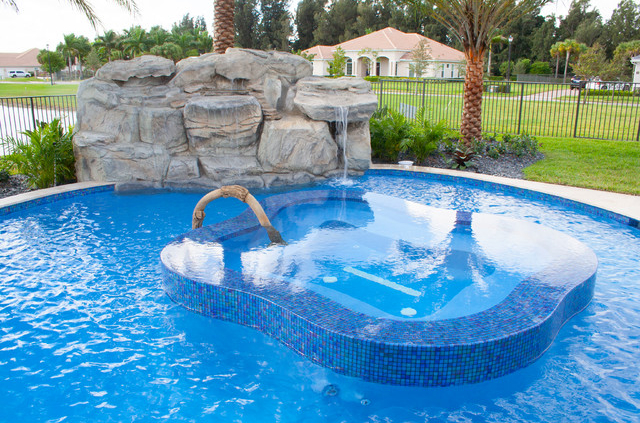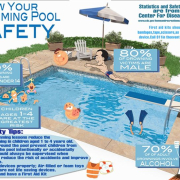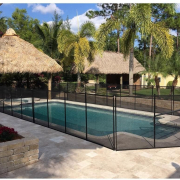A Homeowner’s Guide to Pool and Spa Safety Regulations in Queensland
As a homeowner in Queensland with a pool or spa, it’s essential to be aware of the local regulations governing pool and spa safety. These regulations are designed to prevent accidents, protect children, and ensure the safety of everyone using your pool or spa. Compliance with these laws isn’t just about avoiding penalties; it’s about creating a safe environment for your family and guests. This guide will walk you through the key pool and spa safety regulations you need to know in Queensland.
- Fencing Requirements
One of the most critical aspects of pool and spa safety in Queensland is the fencing and barrier requirements. According to the Pool Safety Standard, all pools must be fully enclosed by a compliant barrier to prevent unsupervised access.
Key Fencing Rules:
- Height and Structure: The fence must be at least 1.2 meters (1200mm) high. It must be sturdy, with no gaps wider than 100mm at the bottom to prevent children from crawling underneath.
- Climb-Resistant: The fence should be designed to be difficult for children to climb. This means no footholds or handholds, and it must be free from trees or structures that a child could use to climb over.
- Gates: Gates must be self-closing and self-latching from the inside. The latch should be located at least 1.5 meters above ground level, and it should be difficult for children to reach.
- Poolside Access: All access points to the pool must be fully fenced, including doors leading directly from the house to the pool area. If the door leads into the pool area, it must be fitted with a compliant self-closing and self-latching mechanism.
- Spa and Pool Barriers
Similar to regular pools, spas must also be securely fenced. Even if your spa is not a traditional pool, it still falls under pool safety regulations if it holds water over 300mm in depth.
If your spa is portable, you need to ensure it’s kept secure and that children cannot access it without supervision. This could mean ensuring it’s placed in an enclosed area, or using a cover or a fence specifically designed for spas.
- Pool and Spa Covers
Pool and spa covers are a great way to enhance safety when the pool or spa is not in use. However, not all covers meet safety standards. Child-resistant covers are a must, and they should be designed to prevent young children from gaining access to the pool area when the cover is in place.
Automatic pool covers are highly recommended because they can be operated easily and ensure the pool remains securely covered when not in use.
- Pool Safety Signs
In Queensland, pool owners are required to display a Pool Safety Sign on the boundary of the pool or spa area. This sign should clearly indicate emergency contact numbers, particularly the local emergency services. It’s also essential to display any relevant safety rules, such as the requirement for supervision of children and restrictions on alcohol consumption around the pool.
- Compliance Inspections
All pools in Queensland are required to undergo a pool safety inspection by a licensed pool safety inspector. This inspection ensures your pool and barriers comply with the relevant regulations.
If your pool doesn’t meet the requirements, the inspector will provide you with a compliance certificate and a list of any changes that need to be made to bring your pool up to standard. Pool owners have 90 days to make necessary adjustments and pass a re-inspection. Failure to comply with these regulations can result in fines or even forced closure of the pool until safety standards are met.
- Regular Maintenance and Upkeep
Once your pool is compliant with the safety regulations, regular maintenance is key to keeping it safe and ensuring that safety features remain effective. Always check the integrity of the fencing and gates to ensure they remain functional. Ensure latches are working, gates are self-closing, and there are no gaps in the fence that could allow access.
Also, perform regular checks on pool covers, alarms, and other safety equipment. If you’re unsure whether your pool or spa meets all the latest safety requirements, it’s a good idea to have an inspector conduct a yearly check.
- Child Safety and Supervision
While the regulations focus heavily on physical barriers, no amount of fencing can replace active supervision. As a homeowner, it’s your responsibility to ensure that all pool users, especially children, are supervised at all times when using the pool or spa.
Make sure all family members understand basic water safety rules, such as never swimming alone, not running near the pool, and not diving in shallow water. It’s also essential to teach young children how to swim, and to make sure all pool users are familiar with emergency procedures, such as CPR.
- The Importance of Pool Safety Laws
Pool and spa safety regulations exist to protect families and communities from preventable tragedies. Queensland has one of the highest rates of drowning incidents in Australia, with many occurring in private residential pools. Adhering to these regulations can significantly reduce the risk of accidents and fatalities, especially among young children.
By taking the time to ensure that your pool and spa comply with all legal requirements, you not only protect your loved ones but also ensure peace of mind when entertaining guests or when your children are enjoying the water.
- Get Advice if You’re Unsure
If you’re unsure whether your pool or spa is compliant with Queensland’s safety regulations, don’t hesitate to seek professional advice. Pool safety inspectors can help guide you through the process and ensure that everything from barriers to covers meets the required standards. Some local councils may also offer advice or guidelines on what constitutes a safe pool area.
- Penalties for Non-Compliance
Failure to comply with pool safety regulations can result in significant penalties, including fines. In extreme cases, failure to comply may lead to the closure of your pool or spa until safety issues are resolved. It’s crucial to ensure your pool meets all legal requirements to avoid such consequences.
Conclusion
As a homeowner in Queensland, understanding and complying with pool and spa safety regulations is crucial for the safety of your family, guests, and the broader community. From installing compliant barriers to ensuring regular inspections and maintenance, taking the right steps now can prevent accidents and provide a secure environment for everyone to enjoy. Always stay informed about any changes to local laws, and don’t hesitate to reach out for professional guidance to ensure full compliance. Your pool or spa should be a place of fun, relaxation, and safety – adhering to the regulations makes that possible.





